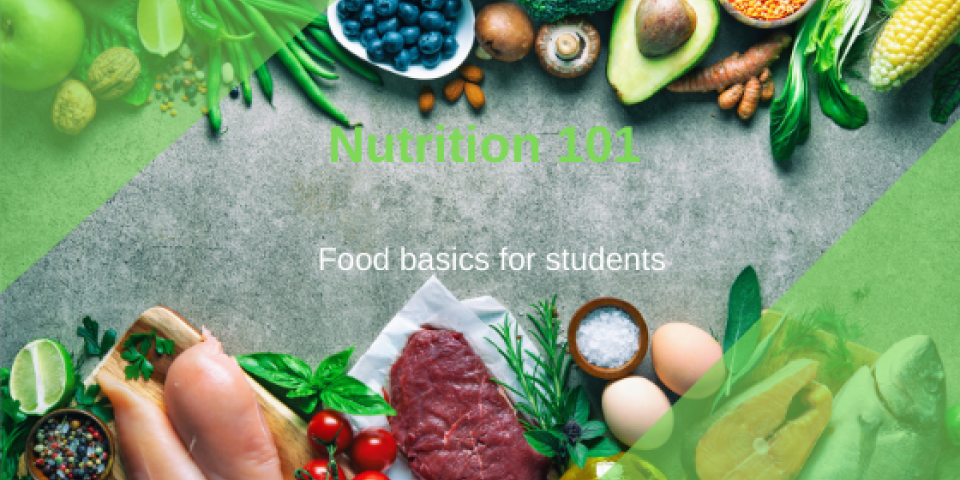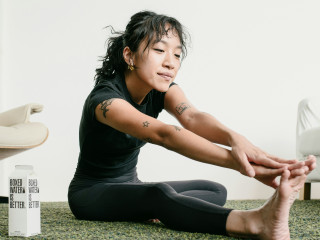Sheffield
News and tips
Student Nutrition 101
Posted on Friday, 23rd October 2020
Many students start at university ready to have fun, move into their new student halls (accommodation), study, and stay up all night. Not considering the importance of their student diet (nutrition). I am back again to explain a bit more about how to eat better and healthier during the lockdown on campus and throughout University. Here I’ll start by explaining the basics of food for a healthy student diet (student nutrition 101).
Sheffield Property To Let's Nutrition 101 for students:
Food is vital!
As most of you know food is our body’s energy, without it, we get easily tired and cannot think properly. If you start obsessing about food or trying to gauge your weight against your intake, or even starving yourself, then its time to talk to someone. Eating when hungry and only until you are feeling satisfied is the key. Eating food for the nutrients it contains is smart. Not eating when you are not hungry is not starving, you can go periods of time not eating, you do not have to eat every 4hrs.
What are Macronutrients?
There are three macronutrients, carbohydrates, protein and fat. Our body uses the nutrients for energy and, in the case of protein, building and repairing cells. Carbohydrates are found in bread, pasta, rice, cereals and vegetables. Protein is found in meat, fish, dairy and beans and pulses. Fat is found in meat, fish, dairy, avocados, nuts and olive oil. This is not an extensive list of sources.
There are 20 essential proteins that your body cannot make for itself, so we must eat them. There are essential fatty acids too. This means you do need to eat some fat as part of a healthy diet.
What are Micronutrients?
These are those vitamins and minerals, you will find a bewildering array in places like Holland and Barrett (Sheffield has multiple). Eating vitamins in their natural food sources is a much better way, as your body can absorb them easily and more effectively. It is also harder to overdose on food-sourced vitamins.
There are 4 fat-soluble vitamins, this means they must be eaten alongside fat so your body can absorb them. Luckily Mother Nature usually packages these vitamins in fatty animal foods, so if you eating vegetable sources you will need to add the fat. Vitamins A, D, E and K are the fat-soluble ones. The body does store these vitamins until it needs them, but you will need to keep the stores topped up. This is the reason you can overdo supplements.
All the B vitamins and vitamin C are water-soluble vitamins. These are not stored in the body, so you need to eat these. You will find cereals are fortified with supplements of these as they do not contain enough of these vitamins after processing. This is why whole grains are better for you.
Minerals, such as iron and zinc are required in much smaller amounts. Many women in the 12-24 age group are low in iron, due to menstruation and the use of iron in the blood.
Eating for nutrients - student diet
If you are going to try to get all your nutrients from food, then you will need to eat a full variety of foods from across the spectrum. The main food groups are meat, fish, dairy, eggs, grains, nuts and seeds, fruit and vegetables. You can see that if you cut out one or more of these food groups, you may need to do more research on how to fill the gaps in your nutrients. For example, vegans and vegetarians know that some of the essential fatty acids come from fish. There is a need to supplement their diet to include those fatty acids.
The message
This is just the basics of nutrition, but the message is quite clear, that eating a full range of food from all the food groups and getting all the vitamins and minerals is what your body needs to operate at its full potential at University and out. Eating foods that have not been highly processed and that you have cooked yourself is even better, as there will not be added ingredients that you don’t need.
In the meantime why not have a look over some Sheffield Property to Let recipes section and if you are interested in fitness tips, check out two articles written in 2018 on staying healthy during the winter months in Sheffield and Keeping fit for free in Sheffield.









